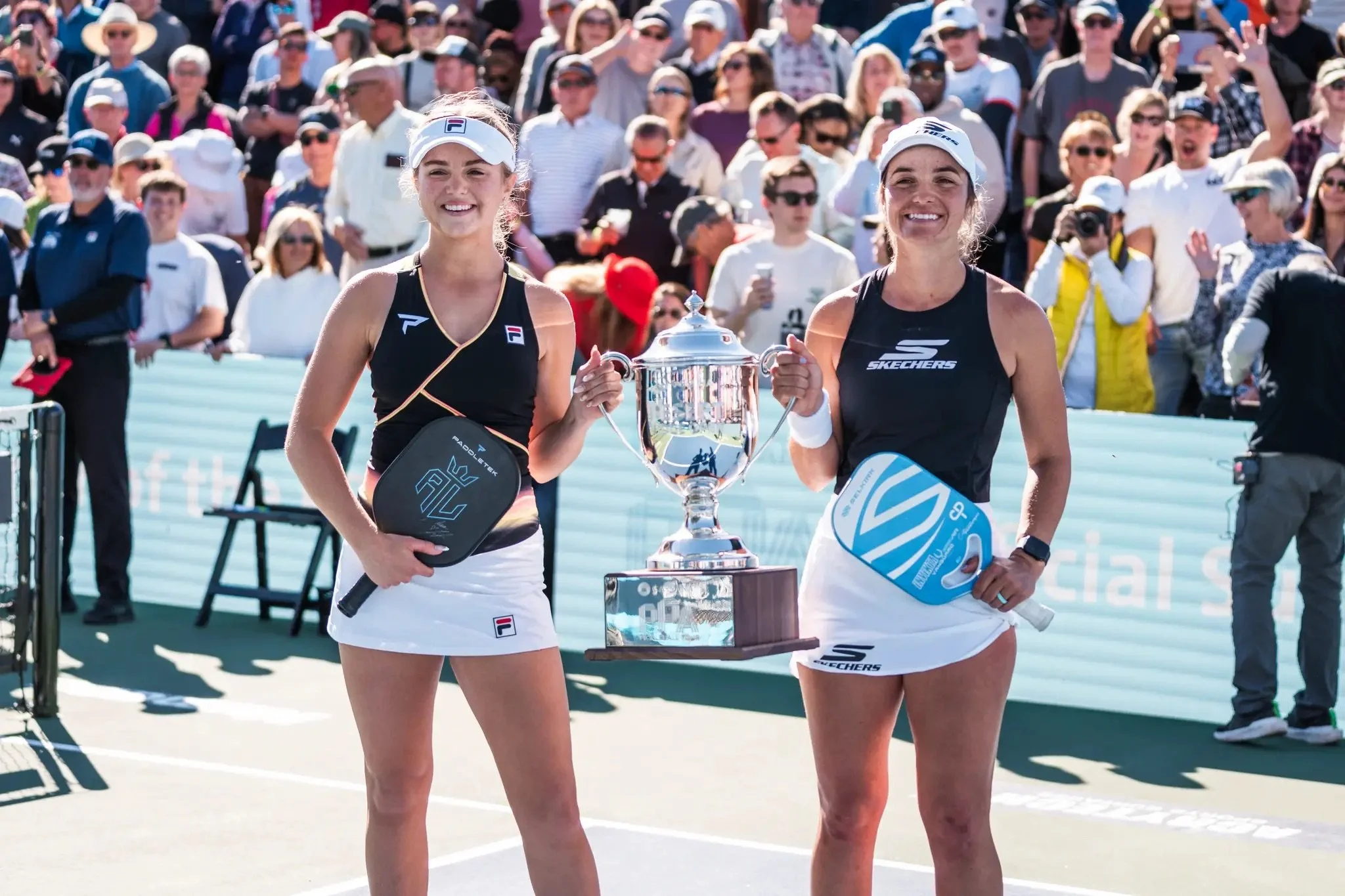From Showdowns To Split: How Pickleball’s Hottest Rivalry Fizzled Out
Source: PPA Tour
In professional sports, rivalries are what elevate the game—where competition meets emotion, and where skill is sharpened not just by training, but by the challenge across the net. For women’s doubles in pro pickleball, that defining rivalry was just beginning to reach its peak: Anna Leigh Waters and Catherine Parenteau versus Anna Bright and Rachel Rohrabacher—a fierce, fast-rising duo affectionately dubbed The Girlies.
But just as things were heating up, it all came to an abrupt halt.
Earlier this month, the pickleball world was shaken when Waters and Parenteau officially ended their dominant partnership. The announcement, layered with emotional farewell posts and waves of fan reaction, marked the end of a pairing that had, until recently, been nearly untouchable in women’s doubles.
Yet what made the split so striking wasn’t just the end of a winning run—it was the timing. Because standing across the court in recent months were Bright and Rohrabacher, who had become a true foil to the top-seeded pair. The matchups were no longer foregone conclusions. They were battles. And they were thrilling.
When Titans Collide
Waters and Parenteau had built a legacy of excellence—precise execution, unshakable chemistry, and relentless poise under pressure. But when Bright and Rohrabacher burst onto the scene, they brought with them a disruptive energy and fearless pace that rattled even the best.
Soon, The Girlies weren’t just new kids on the block—they were legitimate contenders, stealing wins and rewriting expectations. Their aggressive shot-making and bold court positioning began producing real results. And most importantly, they made things interesting.
The rivalry between these two teams was one of the few in the sport where either side could win on any given day. Each match was electric. Each rally, a highlight reel. And each Championship Sunday featuring them? Must-see pickleball.
What the Rivalry Meant—For The Players And The Sport
Speaking during the Veolia Cape Coral Open, Rachel Rohrabacher reflected on the power of the rivalry and how much it meant for everyone involved.
“It’s super beneficial for the players because there’s no complacency,” she said. “Since we go back and forth, we’re constantly pushing each other to get better… A rivalry is good for all parties because it’s exciting.”
Indeed, there was something undeniably refreshing about watching two evenly matched teams exchange wins. Fans were split, merch was made, and online forums buzzed with predictions. In a sport still carving its place in the mainstream, this kind of narrative was priceless.
Even Waters admitted the competitive edge helped her and Parenteau evolve.
“Anna and Rachel really pushed us,” she said. “We had to get creative. All four of us have gotten better as the rivalry continued.”
It was a tennis match, a chess game, and a track sprint all rolled into one—and the defense, in particular, drew attention. Points went long, shots became daring, and the energy on court was contagious.
These were not just games. They were statements. They were what pickleball could be at its very best.
Now What? The Next Chapter Begins
With Waters now teaming up with former rival Bright for the remainder of the 2025 PPA Tour, a new chapter begins. On paper, it’s a super team. Two elite athletes combining forces to chase continued dominance.
But while fans will be excited to see what this new partnership brings, many are still caught up in the “what ifs” of what was left behind.
How many more classics could we have witnessed between Waters/Parenteau and Bright/Rohrabacher? Who would have come out on top over a full season? Could this rivalry have helped define the modern era of women’s pro pickleball?
We may never know.
And that’s what makes the end of this rivalry so bittersweet.
What We’re Left With
We’re left with a short-lived but unforgettable stretch of matches that raised the level of play, drew fans in, and proved that women’s pickleball is just as thrilling, intense, and narratively rich as anything the pro tour has to offer.
We’re also left with a sense of anticipation. Because if there’s one thing rivalries teach us, it’s that nothing is ever truly over. Pairings can change. Players evolve. And history? It has a way of circling back.
Until then, we’ll always have The Girlies vs. Waters and Parenteau.
And what a rivalry it was.

